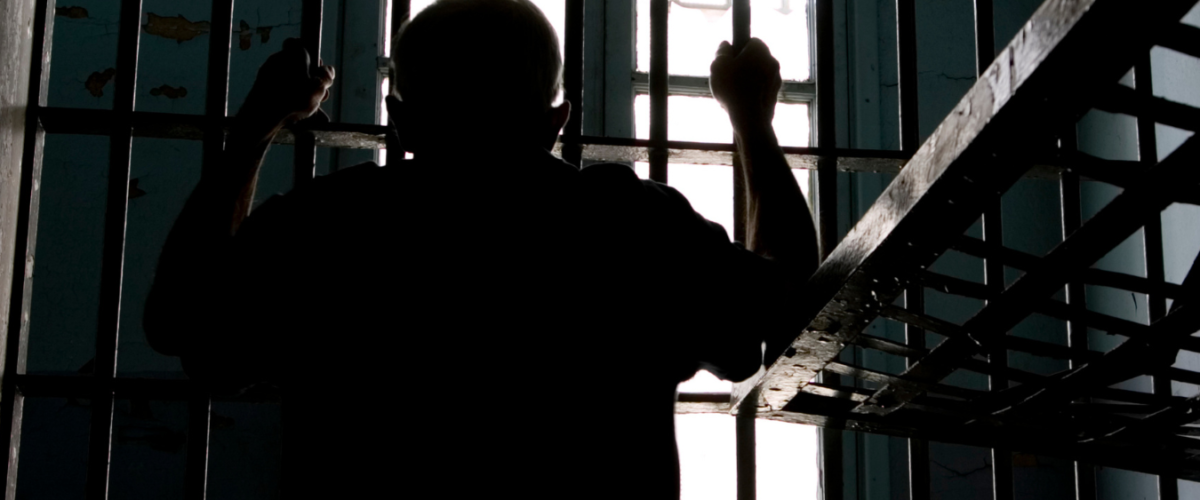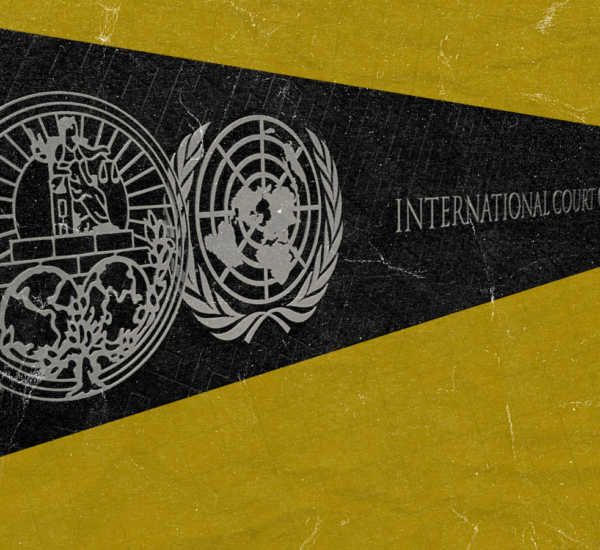This series analyses the changes proposed by the Criminal Law Bills in 2023. This article was first published as part of Project 39A’s Bharatiya Nagarik Suraksha Sanhita Bill, 2023 and Bharatiya Sakshya Bill, 2023: A Substantive Analysis, a complete version of which can be accessed here.
This post analyses the newly added provision in the Bharatiya Nagarik Suraksha Sanhita Bill, 2023 that lays down the procedure for filing of mercy petitions by death row prisoners.
Cl.473 BNSS is a new provision titled ‘Mercy Petition in death sentence cases’ which lays down the procedure for submitting mercy petitions to the President and Governor under Art.72 and Art.161 of the Constitution, respectively. A statutory written procedure with respect to mercy petitions does not exist presently; limited guidance is available in jurisprudence, guidelines released by the Ministry of Home Affairs, and jail manuals of different states where the procedure varies from state to state.[1]
This piece discusses the changes brought in Cl.473 BNSS along with its possible implications. While there may be benefit in attempting to streamline the procedure applicable to mercy petitions, Cl.473 BNSS runs contrary to the mercy jurisprudence judicially developed over the years. As a result, it appears to adversely affect a convict’s constitutional right to file mercy petitions.
I. Background
Art.72 and Art.161 of the Constitution provides the President and Governor respectively with wide powers to grant pardons, reprieves, respites or remissions of punishment or to suspend, remit or commute the sentence of any person convicted of any offence. These powers, granted to the highest dignitaries of the State, operate on a different plane than judicial powers. Their exercise does not modify the judicial record.[2] Further, these powers are very expansive – the President and Governor can look beyond the case files, and into any circumstance pertaining to the convict and their life. These powers also cannot be restricted by statute.[3] They are significant since this gives convicts a constitutional right to file a mercy petition,[4]often a last hope for those sentenced to death.[5]
II. Restriction on who can file Mercy Petitions
Cl.473(1), through the phrase ‘convict under the sentence of death or his legal heir or any other relative’ appears to limit the right to file a mercy petition to the convict or persons related to them. Presently, there is no such restriction. Although Art.72 and Art.161 are rights available to convicts, mercy petitions are often filed by third parties on their behalf, such as organisations or unrelated individuals.[6]
It is not uncommon for death row convicts to lose contact with their families.[7] In such situations, under the BNSS, only one option would remain – for the death row convicts to themselves file the petition. Most death row convicts are extremely poor;[8] lack of education and other vulnerabilities results in their inability to understand and meaningfully exercise their legal rights.[9] This inability is possibly exacerbated by the emotional distress that accompanies the knowledge of an imminent execution. Importantly, an overwhelming majority of death row convicts suffer from mental illnesses, and many have intellectual disability,[10] which might render them incapable of filing a mercy petition, or giving instructions to lawyers to file on their behalf. Thus, by barring third parties from filing mercy petitions, the BNSS fails to recognise these realities and is likely to have a severe adverse impact on a meaningful exercise of this right.
III. Restriction on the number of Mercy Petitions
Cl.473(1) BNSS uses the phrase ‘if he has not already submitted a petition for mercy’. This may imply a restriction on the number of mercy petitions that can be submitted on behalf of the convict to only one; that is, one before the Governor and one before the President. Presently, the Court has recognised the right to file multiple mercy petitions before the same authority, in case of change of circumstances.[11] For instance, if a convict develops mental illness subsequent to filing of the first mercy petition, they can file another petition on the basis of this new ground. Restricting the number of permissible petitions to only one would deprive a convict of any opportunity to submit such subsequent developments for consideration. Such a right would be especially required under the BNSS, which permits only convicts or their families to file the petition, and that too within a short and rigid time limit as discussed below. This increases the likelihood of the filed petitions being hurried and not comprehensive.
IV. Introduction of timelines
Cl.473 provides for several time limits. First, where a mercy has not already been submitted, Cl.473(1) imposes the time limit of thirty days for submitting mercy petitions to the Governor or the President, from the date on which the Superintendent of Jail informs the prisoner: (a) about the rejection of their special leave petition by the Supreme Court, or (b) about the date of confirmation of the death sentence by the High Court and the time for filing an appeal or a special leave petition in the Supreme Court has expired. Second, Cl.473(2) states that the petition may be first made to the Governor and upon rejection, the convict will have sixty days from the date of rejection, to make a petition to the President. Since the President is required to act in accordance with the advice of the Council of Ministers, sub-clause (4) requires the Central Government to seek comments of the State Government. Upon receipt of these, the Central Government is required to make recommendations to the President within sixty days. Third, Cl.473(6) requires communication of the President’s decision on the mercy petition by the Central Government within forty-eight hours, to the Home Department of the State government and the Superintendent of the Jail or officer in charge of the Jail.
Note that while an unreasonable executive delay is a valid supervening circumstance for reduction of a death sentence, the Supreme Court has been wary of creating fixed timelines for consideration of mercy petitions by the President and Governor.[12] In line with this jurisprudence, Cl. 473 does not create such time limits for the President or the Governor.
a. Issues with thirty-day timeline for submission of Petitions under Cl.473(1)
The procedure under the BNSS may be aimed at achieving efficiency, however, the creation of rigid time limits is extremely problematic; practically nullifying the prisoner’s ability to file a comprehensive petition. Presently, the Supreme Court has held that ‘reasonable’ time must be afforded to convicts to file a mercy petition.[13] BNSS introduces a thirty-day deadline for submission of mercy petitions under Cl.473(1), which may not be sufficient time for the convicts/their families to go through all the necessary documents and prepare the petition. For instance, other than case records, factors like post conviction mental illness and solitary confinement are also relevant in mercy petitions. Procuring records documenting these, especially from the prison administration after filing various applications, may take time. Further, given that mercy petitions are filed as a last resort against executions, it is important to seek legal advice. Locating and engaging an affordable lawyer is a time-consuming process, especially given the likely poor socio-economic profile of the convict. Communicating with and instructing lawyers is also generally a time consuming exercise since most jails permit visits only for a few minutes, across a metal barrier.
b. Issues with timeline for submission of Mercy Petition to President under Cl.473(2)
It is unclear why the BNSS has a thirty-day deadline for filing an application before the Governor but a sixty-day deadline for filing it before the President. In any event, while Cl.473(1) provides that the time period of thirty days will commence after the prisoner is informed about the relevant event as provided, Cl.473(2) states that the sixty-day period for filing a petition before the President would commence from the date of rejection/disposal of the mercy petition by the Governor. Thus, the latter deadline for filing a mercy petition before the President, does not commence from the date of the prisoner being informed. Further, there is no sub-clause mandating forthwith communication of rejections by the Governor to the concerned convict, or even to the Superintendent of Jail.[14] Cl.473(6) provides a forty-eight hour timeline for communication of rejections including to the Superintendent but pertains only to rejections by the President. This lapse is significant, since it can result in a situation where the convict’s petition is rejected by the Governor, however they are informed of the rejection only after sixty days, leaving no time to submit a petition to the President.
c. Effect on ability to avail other available Judicial Remedies
As per the timelines stipulated under Cl.473, it seems that convicts could be forced into filing a mercy petition without even exhausting all available judicial remedies. Presently, after imposition of a death sentence by the Sessions Court, the case goes to the High Court for confirmation under s.366 CrPC. If the High Court confirms the sentence, an appeal can be filed before the Supreme Court. The Supreme Court routinely hears such appeals on merits in all death penalty cases.[15] Even if a special leave petition is dismissed, convicts have the right to file a review petition.[16] To further reduce any scope of error, the Supreme Court has carved out an exceptional remedy of curative petitions; these can be filed on limited grounds to prevent miscarriage of justice or abuse of power.[17] In the context of mercy petitions, the Supreme Court has repeatedly emphasised the importance of review petitions,[18] and directed that convicts should have the right to file review petitions before they are required to file a mercy petition.[19]
Cl.473 is then contrary to present jurisprudence, and in effect forces convicts to file mercy petitions when the options to file a review petition and curative petition exist. For instance, after dismissal of their appeal in the Supreme Court, convicts will only have thirty days to file both a mercy petition under Cl.473(1), as well as a review petition, which also has a time limit of thirty days.[20] While courts can condone delays in filing of review and curative petitions, these simultaneous time limits may still adversely affect the ability of convicts to pursue either remedy effectively. Further, not filing the mercy petition within the set time limit may amount to forfeiture of this right.
V. Impact on cases involving Multiple Accused
Cl.473(3) requires that in cases having multiple convicts, if one convict prefers a mercy petition, then all other co-accused must also make their mercy petitions within sixty days. If other co-accused do not make such petition, the Superintendent of the Jail is required to send their names, addresses, copy of the record of the case and ‘all other details of the case’ to the Central Government or State Government for consideration along with the mercy petition of the convict who has filed a petition. Sub-clause (5) provides that all mercy petitions for cases having multiple convicts shall be decided together by the President. A similar provision is absent for the Governor.
Filing a mercy petition allows convicts to present their individual grounds; it is highly unlikely that two persons convicted in the same case will have the same plea. For a meaningful consideration, in addition to the case record, the President and the Governor can also consider a convict’s socio-economic background, medical records/illnesses if any, jail conduct records etc. Each of these personalised documents will be different for different convicts. However, Cl.473(3) undermines this by enabling the Superintendent to simply share the name and address along with case records for the co-accused. This would leave out pertinent information about their life circumstances, preventing a meaningful realisation of the right to seek mercy. Significantly, despite this major lapse, the convict may not be permitted to file another mercy petition before the same authority, if the sending of details by the Superintendent is construed as submission of a mercy petition.
VI. Restriction of Judicial Review
Cl.473(7) states that the President’s order made according to Art.72 of the Constitution will be final and cannot be appealed against. It further mentions that ‘any question as to the arriving of the decision by the President’ shall not be enquired into in any court.
At the outset, it is unclear why this clause only deals with the President’s decision and not the Governor’s. In any case, the first part of this sub-clause appears to reiterate the existing position. Given the extraordinary nature of mercy powers, it is settled law that appeals against the decision of the President or the Governor cannot be made before any court, and reasons for their decision also need not be given.[21] Judicial review of the decision of the President or the Governor is restricted, and courts can only intervene to remedy a fundamental rights violation.[22]
The second part of Cl.473(7) appears to contradict judicial developments, and might conflict with fundamental rights of a convict. The phrase ‘any question as to arriving of the decision’ is very broad. It can cover within its ambit questions regarding procedural aspects of decision making, such as the time taken to decide, and whether relevant materials were kept out of consideration while deciding. Presently, Writ Petitions under Art.226 or Art.32 of the Constitution can be filed, and judicial review of the order passed by the President or the Governor is permissible mainly on limited procedural aspects of the decision making and on grounds of breach of fundamental rights.[23] The Supreme Court has held that judicial review could be allowed: (i) if the order is passed without application of mind, (ii) is malafide, (iii) is passed on extraneous or wholly irrelevant considerations, (iv) relevant materials had been kept out of consideration, or (v) the order is arbitrary.[24] Courts have widened the scope of enquiry to include ‘supervening circumstances’, the presence of which violate fundamental rights of the convict, necessitating a reduction of the death sentence. Such supervening circumstances can include inordinate and unexplained delay in deciding the mercy petition, insanity, solitary confinement etc.[25]
It is important to note that Cl.473(7) BNSS cannot take away this limited power of judicial review of the courts, even if it seeks to. The exercise of these powers by the judiciary in respect of the President’s mercy decision is rooted in Art.32 of the Constitution, which cannot be restricted by a statutory provision.
[1] Ministry of Home Affairs, Government of India, ‘Guidelines for Safeguarding the interest of the Death Row Convicts’, 4 February 2014, No. VII-17013/1/2014-PR.
[2] Kehar Singh v. Union of India (1989) 1 SCC 204.
[3] Shatrughan Chauhan v. Union of India (2014) 3 SCC 1; Maru Ram v. Union of India (1981) 1 SCC 107.
[4] Shatrughan Chauhan.
[5] Jagdish v. State of Madhya Pradesh (2020) 14 SCC 156.
[6] Narayan Chetanram Chaudhary v. State of Maharashtra 2023 SCC OnLine SC 340: petition filed by public spirited individuals; Balwant Singh v. Union of India 2023 SCC OnLine SC 555: petition filed by Shiromani Gurdwara Parbandhak Committee.
[7] Project 39A, Deathworthy: A Mental Health Perspective of the Death Penalty, 2021, Page 226.
[8] Project 39A, Death Penalty India Report, 2016; Shatrughan Chauhan [241.11].
[9] Project 39A, Deathworthy: A Mental Health Perspective of the Death Penalty, 2021, Page 219.
[10] Project 39A, Deathworthy: A Mental Health Perspective of the Death Penalty, 2021, Page 269.
[11] Yakub Abdul Razak Memon v. State of Maharashtra (2015) 9 SCC 552.
[12] Triveniben v. State of Gujarat (1989) 1 SCC 678: In dealing with the question of executive delay, the Supreme Court held that fixing a time limit for the exercise of Art.72 and Art.161 powers meant creating a restriction on a constitutional scheme; T.V. Vatheeswaran v. State of Tamil Nadu (1983) 2 SCC 68: it was held that delay of two years in executing a sentence of death (from the time it is first passed by the Trial Court) would be sufficient to entitle the prisoner to have his sentence quashed and commuted to life imprisonment. However, this decision was overturned in Sher Singh v. State of Punjab (1983) 2 SCC 344 where it was observed that no hard and fast rule can be laid down for fixing a time limit. The Court was cognizant of the fact that the cause of delay in each case has to be assessed according to the facts of that case.
[13] Shabnam v. State of Uttar Pradesh (2015) 6 SCC 702.
[14] In Shatrughan Chauhan, the Supreme Court laid down guidelines, requiring that the prisoner be informed forthwith and in writing about rejection of their mercy petitions.
[15] Babasaheb Maruti Kamble v. State of Maharashtra (2019) 13 SCC 631.
[16] Mohd. Arif v. Supreme Court of India (2014) 9 SCC 737: the right of an open hearing in review petitions in death penalty cases, was held as essential to uphold Art.21 rights of the convicts.
[17] Rupa Ashok Hurra v. Ashok Hurra (2002) 4 SCC 388 [51]: The grounds identified were violation of principles of natural justice and apprehension of bias.
[18] Shabnam.
[19] B.A. Umesh v. Union of India 2022 SCC OnLine SC 1528; Shabnam.
[20] Order XLVII Supreme Court Rules, 2013.
[21] State v. Jasbir Singh 1979 SCC OnLine Del 220.
[22] Maru Ram [57]-[70]; Kehar Singh; SR Bommai v. Union of India (1994) 3 SCC 1.
[23] Kehar Singh.
[24] Epuru Sudhakar v. Govt. of Andhra Pradesh (2006) 8 SCC 161.
[25] Supervening circumstances can be delay in execution, insanity, mental illness or schizophrenia, solitary confinement, reliance on judgments declared per incuriam, and procedural lapses in the disposal of the request; Epuru Sudhakar; TV Vatheeswaran; Triveniben; Sher Singh v. State of Punjab (1983) 2 SCC 344; Shatrughan Chauhan; Accused X v. State of Maharashtra (2019) 7 SCC 1.





